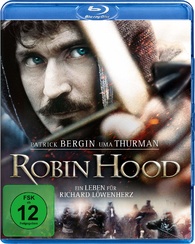

1991 saw one of those occasional races to the screen between two rival projects about the same subject (Christopher Columbus, giant meteors, etc) when two rival studios each came up with their own take on
Robin Hood. For a while it looked like 20th Century Fox had the edge with their John McTiernan-directed version only for it to have the wind taken out of its sails when Kevin Costner signed up for Morgan Creek’s Prince of Thieves instead (a third Robin Hood film set up at TriStar to be directed by Ed Zwick threw in the towel). Presumably having spent too much money in the two years they’d been developing it to completely abandon it, Fox brought in Working Title to make a much lower budget version with John Irvin directing and McTiernan taking a producing credit, managing to get to European cinema screens before its big budget rival but doing such poor business it ended up premiering in the US as a TV movie. Yet while it’s certainly neither a blockbuster nor one of the great Sherwood Forest adventures, it’s surprisingly decent time filler despite its limitations, albeit one you have to make a few allowances for.
Chief among the latter is Irvin’s direction, which is only sporadically cinematic and suffers from his habitual weakness staging action scenes: there’s no zest or panache when the film really needs to let rip, his unimaginative camera placement making the least of the stunt work and the reliable William Hobbs’ choreography of the swordplay and making a real pig’s ear of the finale, which is more “Will this do?” chaotic than exciting and coherent. It’s a shame, because the atmospheric opening, with Jason Lehel’s cinematography showing a real feel for cold and misty mornings, and a scene where Patrick Bergin’s Robin tells a disguised Marian (Uma Thurman) a story hint at the potential this had to be something special. As might be expected from a script co-written by playwright John McGrath, the author of
The Cheviot, The Stag and the Black, Black Oil and screenplays like
The Reckoning (1970) and
The Bofors Gun, it has ambitions to be something of a downwardly mobile character-led state of the nation piece that are never fully realised in a film that can’t quite make up its mind what approach its taking to its well-worn subject matter and where the energy levels are highly inconsistent.
Still, Patrick Bergin, still in that brief period when it looked like he might become a star instead of a straight to video fixture, has fun as Robin (he memorably quipped that the casting was ‘the Celts versus the Krauts) even if Jurgen Prochnow is the only Norman who attempts a French accent (a fairly decent Alsatian one as it happens, though undermined by the need to make him a bit foppish at times).
The German Bluray of the theatrical version is a decent transfer in the 1.85:1 widescreen ration with English and German soundtrack options and a behind the scenes stills gallery the only extra.

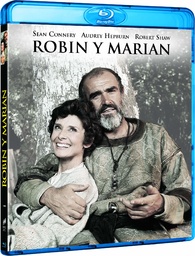 “I've hardly lost a battle, and I don't know what I've won. 'The day is ours, Robin,' you used to say, and then it was tomorrow. But where did the day go?”
“I've hardly lost a battle, and I don't know what I've won. 'The day is ours, Robin,' you used to say, and then it was tomorrow. But where did the day go?”
Of the three adventure films that Sean Connery made in the mid-70s,
Robin and Marion is the one that people tend to overlook or even passionately hate. Certainly it’s a film whose melancholy tone isn't for everyone - which is possibly why it took so long to get made (it was while researching this that James Goldman stumbled across the antics at Chinon that inspired
The Lion in Winter). Returning disillusioned from the Crusades, its Robin is very much a man past his prime struggling to live up to the legend that's grown up around him in his absence and finding it an impossible task. It's at times achingly sad and was probably hobbled by expectations - Audrey Hepburn's comeback, sold as a romantic adventure (they changed the original title from
The Death of Robin Hood to make it sound more romantic), Connery crossing swords – literally this time - with Robert Shaw again for the first time since
From Russia With Love, from the director of the
Three Musketeers movies and what you get is a film about legends past their prime destroying themselves trying and failing to live up to the impossible legends that have grown up around them. Talk about setting up the wrong expectations... Small wonder that, unlike
The Wind and the Lion and
The Man Who Would Be King, it barely recouped its budget worldwide despite Goldman’s script being one of the finest and most subtly layered of the Seventies (and, like The Lion in Winter, full of great dialogue and a sense for how Medieval life was probably really lived).
It's certainly one of Connery's very best performances: the scene where he recounts a pointless massacre in the Crusades with quiet bitterness yet still seems completely unable to understand how Marian could ask him why he didn’t leave before offering a confused
“Because… he was my king” plants him firmly as a man of the 12th Century whose horizons are limited by the social order of the day rather than the idealised Victorian image of Robin that defined most 20th Century interpretations. A simple man, past his prime (it’s one of his earliest non-toupee roles) and gradually realising that he has outlived his moment and has to face up to his oncoming death, the film carries a real emotional charge as he, Marion and his ageing followers try to snatch a few last moments of love and glory after so many wasted years. Similarly Hepburn’s Marian finds herself drawn back to the dreams of youth that she’s spent twenty years in holy orders successfully forgetting, all too aware it’s too late for a happy ending but still slipping into nostalgia and what ifs despite herself. Theirs is a genuine mature love story filled with regret at missed chances as they fall back in love again, Marian’s quiet final declaration of love earning the tears that you’ll shed.
Albeit not quite as bright, like Robin a simple man but not a stupid one, Nicol Williamson’s Little John is no mere third wheel here despite the film being as much about his love for Robin as Marian’s, his relationships with both Robin and Marian well realised even if rarely articulated: it’s a master class in saying everything while doing and saying little. Nor is Shaw’s Sheriff overlooked, no snarling villain but an intelligent man of integrity who will never advance because his illiterate ‘betters’ are suspicious of anyone who can read or write who is aware that this is his own last chance to make his mark. All four actors are at the absolute top of their game here, playing it real rather than to the gallery.
Yet it’s also often surprisingly funny without ever degenerating into the broad slapstick Lester’s other period pieces are prone too: the humour is often observational or subtly behavioural and everything flows naturally from the characters’ humanity and mortality. It’s not without action either, though that is filled with an awareness of age and diminished prowess as well as the savagery of the age: when Robin and the Sheriff finally duel there’s no soaring Korngold score or stylised lighting with giant dramatic shadows and heroic banter in lavish castle sets, just two increasingly exhausted men brutally hacking away at each other with huge heavy broadswords they find it increasingly difficult to lift. Probably the last Richard Lester film that’s especially well directed before he went into a horrendous decline, it also boasts a strong supporting cast - Richard Harris as King Richard, Ian Holm as King John, Denholm Elliott as Will Scarlet, Ronnie Barker as Friar Tuck and Esmond Knight among them – and a beautiful, yearning score from John Barry (one which Lester hated and was a last-minute replacement for a rejected score by Michel Legrand: Barry’s score had to wait until 2008 for an official soundtrack release and Legrand’s until the following year). If only, as Connery often said, they kept the original title instead of selling it as a romantic adventure it might be better remembered today – it’s a film that’s well worth remembering.
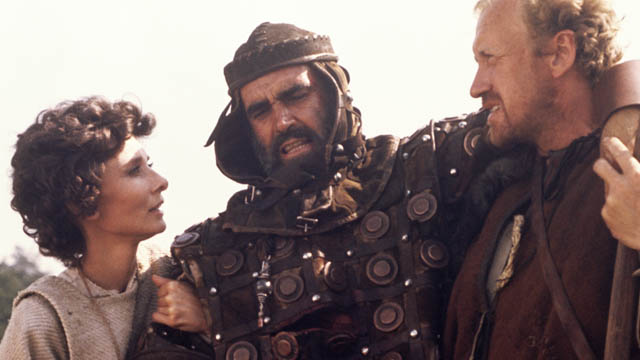
Like Sony’s DVD, this is extras-lite – just the original trailer, and non-anamorphic at that – but it’s a, for the most part, particularly lovely transfer that does justice to David Watkin’s superlative but unshowy cinematography and bringing out the throwaway details in Gil Parrondo and Michael Stringer’s use of predominantly existing locations to recreate a convincingly lived-in half-built, half-falling to pieces Middle Ages. Unfortunately it does struggle in the night scene in Sherwood late in the picture where there’s some light fluctuation and DNR is particularly noticeable in the last third (especially one close-up of Little John sitting under a tree) before righting itself.
Trivia note: Ronnie Barker reportedly got the role of Tuck when frequent Lester co-star Roy Kinnear was unavailable and earned much derision at the time for his refusal to ride a horse as required by the script (the one shot you see him seated on a horse it’s held by another actor). Considering what happened to Kinnear on
The Return of the Musketeers, his aversion no longer seems so petty.


















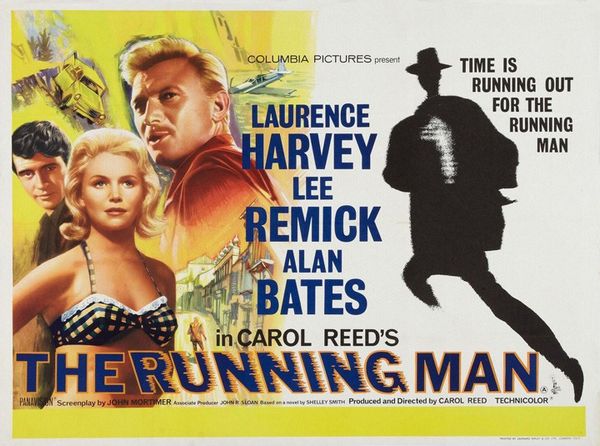
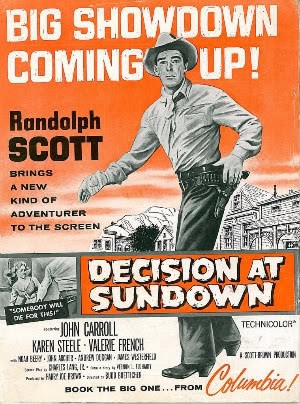
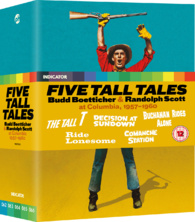


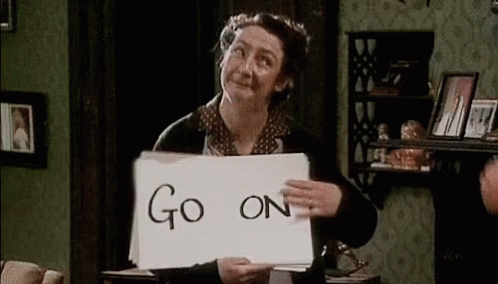
.jpg)











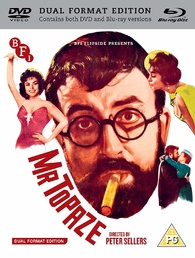
 Linear Mode
Linear Mode

